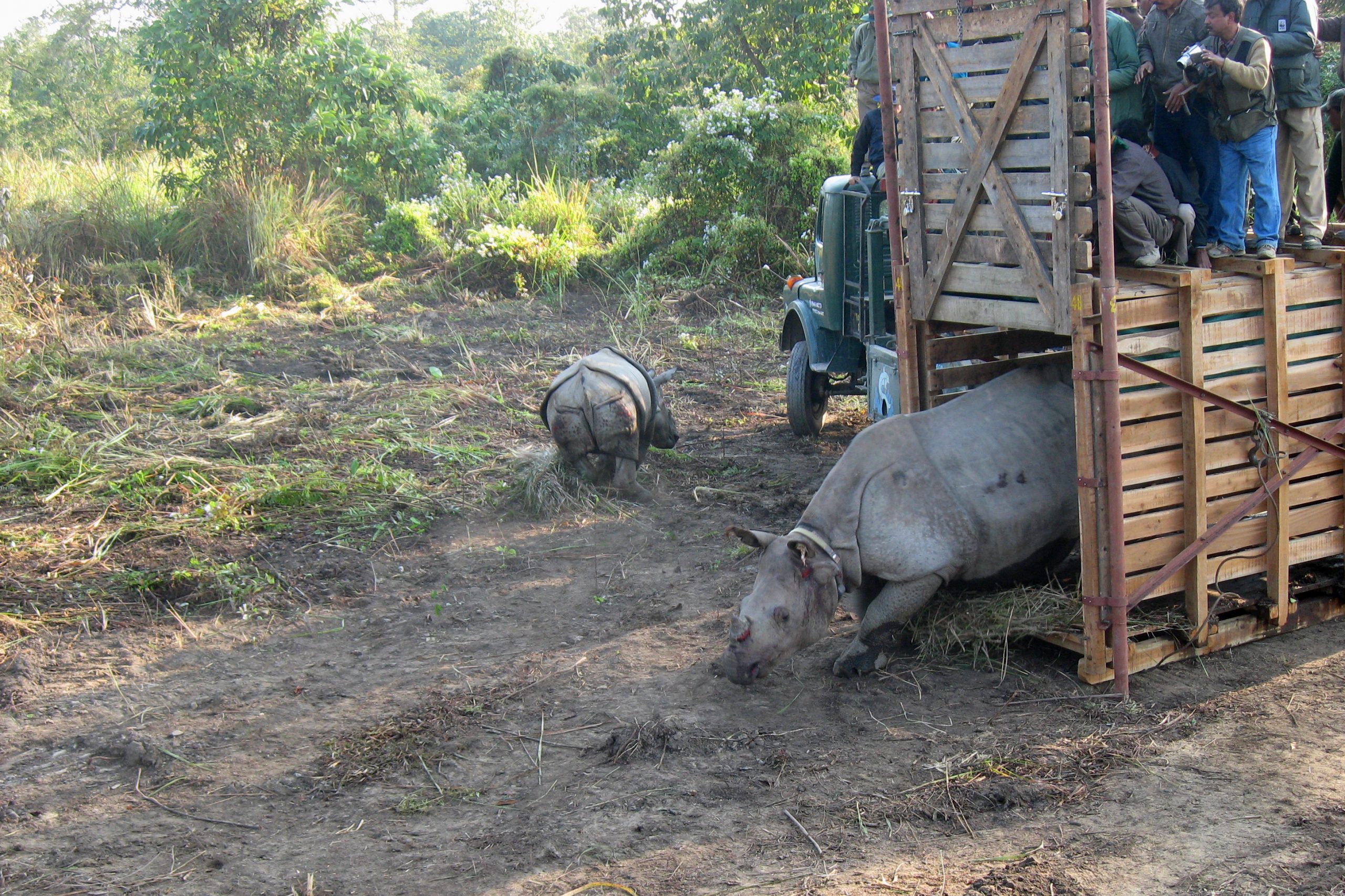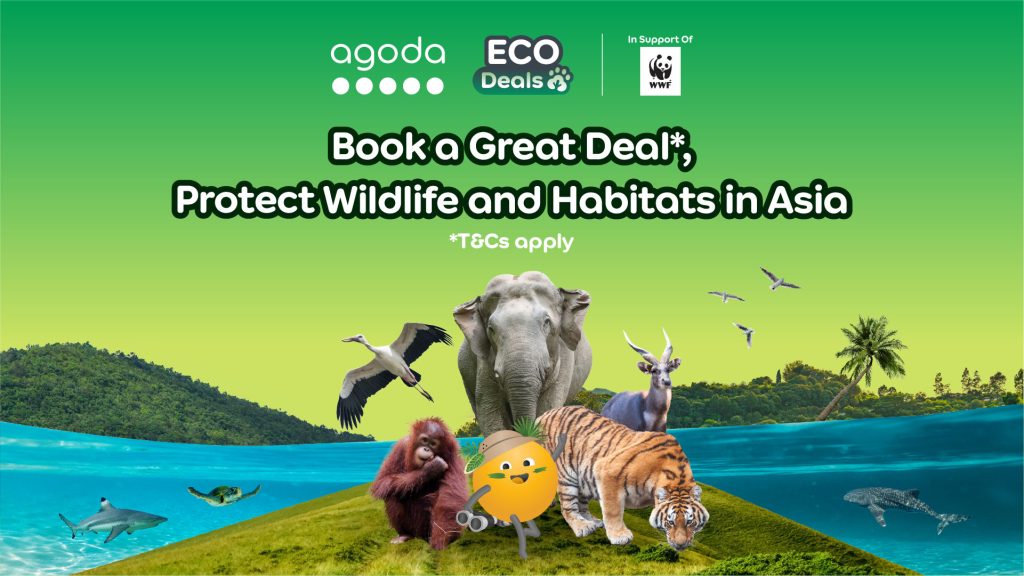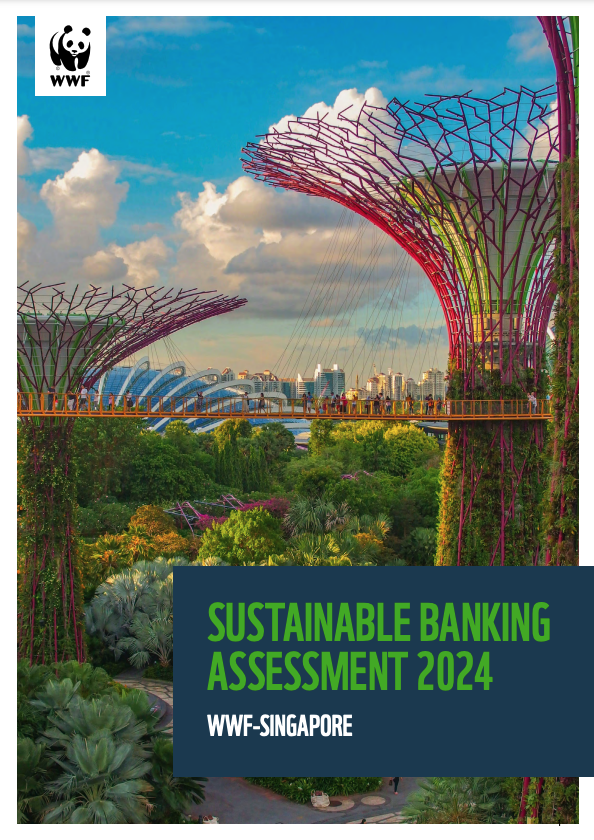New Delhi, India – Ongoing efforts to increase the population of the vulnerable Indian Rhinoceros received a crucial lift just before New Year’s with the successful translocation of two female rhinos to a national park in India’s northeastern state of Assam.
The year-long process of procuring tranquilizers, radio-collars and other equipment needed to move the two rhinos – one adult and one juvenile – paid off in late December after a specially trained team released the pair in Manas National Park located on the Himalayan foothills.
The rhinos, which are currently listed as Vulnerable by the International Union for Conservation of Nature (IUCN), were moved to Manas from the Pobitora Wildlife Sanctuary in specially designed crates.
The nearby Pobitora sanctuary has accumulated the world’s highest density of rhinos, with over 80 in less than 18 sq. km of habitat.
Translocation proving to be a successful strategy
“The present rhino translocation is very important to initiate the next round of translocations in Assam,” said Dr. Dipankar Ghose, head of WWF-India’s Eastern Himalayas Program.
“It has strengthened the confidence of all teams involved. Given the excellent support received from the state Forest Department and the administration, this is also a landmark achievement for active management of species involving different stakeholders.”
Translocation is an important part of the Indian Rhino Vision 2020 (IRV 2020), a joint program that includes the Department of Environment and Forests of the Government of Assam, WWF and the International Rhino Foundation (IRF). The program is also supported by the the Bodoland Territorial Council, US Fish & Wildlife Service and local communities.
IRV 2020’s vision is to increase Assam’s rhino population from the current 2,200 individuals to 3,000 by the year 2020. This will be accomplished through wild-to-wild translocations from Kaziranga National Park, Pobitora Wildlife Sanctuary, the Dibru Saikhowa National Park and the Laokhowa and Burachopari Wildlife Sanctuary to Manas.
A continuing conservation success story
From an estimated low of 20 individuals in 1905, the population of Indian Rhinoceros – also known as Greater One-horned Rhinoceroses – has increased over 100 fold, nearly all in Assam and most (86%) within the confines of Kaziranga National Park.
IRV 2020 also aims aims to secure the long-term survival of wild rhinos in Assam by expanding their distribution to reduce risks like disease, in-breeding and mass mortality.
“This successful translocation is a huge step forward for the survival of this magnificent species,” said Sybille Klenzendorf, Director of Species Conservation at WWF US.
“It’s amazing to see the hard work of so many people pay off with a safe, successful operation.”
More translocations of rhinos planned for future
The first phase of wild-to-wild translocations under IRV 2020 was carried out in April of 2008 when two male rhinos were re-introduced into Manas National Park from Pobitora Wildlife Sanctuary.
During the second phase, a total of eighteen rhinos will be translocated from Pobitora Wildlife Sanctuary and Kaziranga National Park to Manas National Park in several batches. As with the earlier translocations, the adult female has been fitted with a radio-collar, and both will be monitored throughout the year by Manas National Park staff with support from WWF-India.















